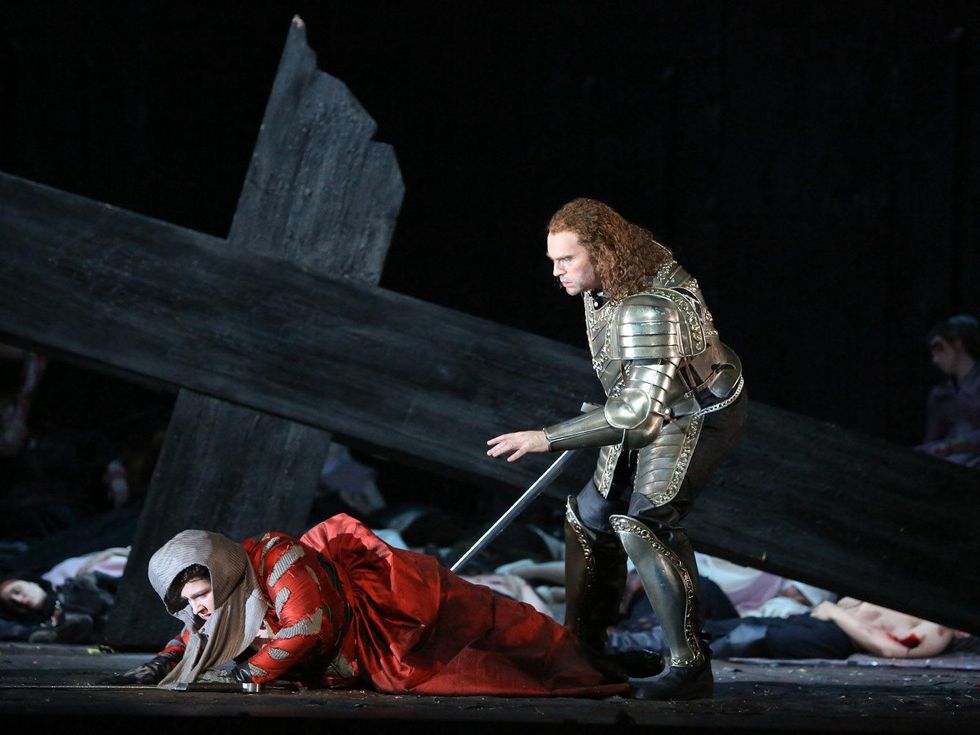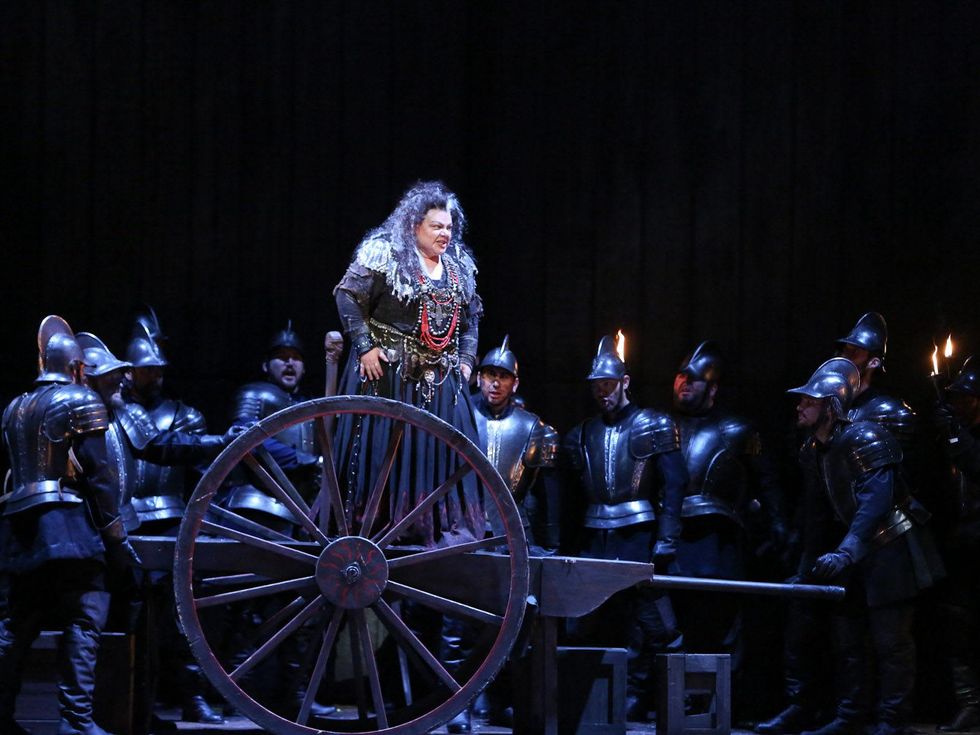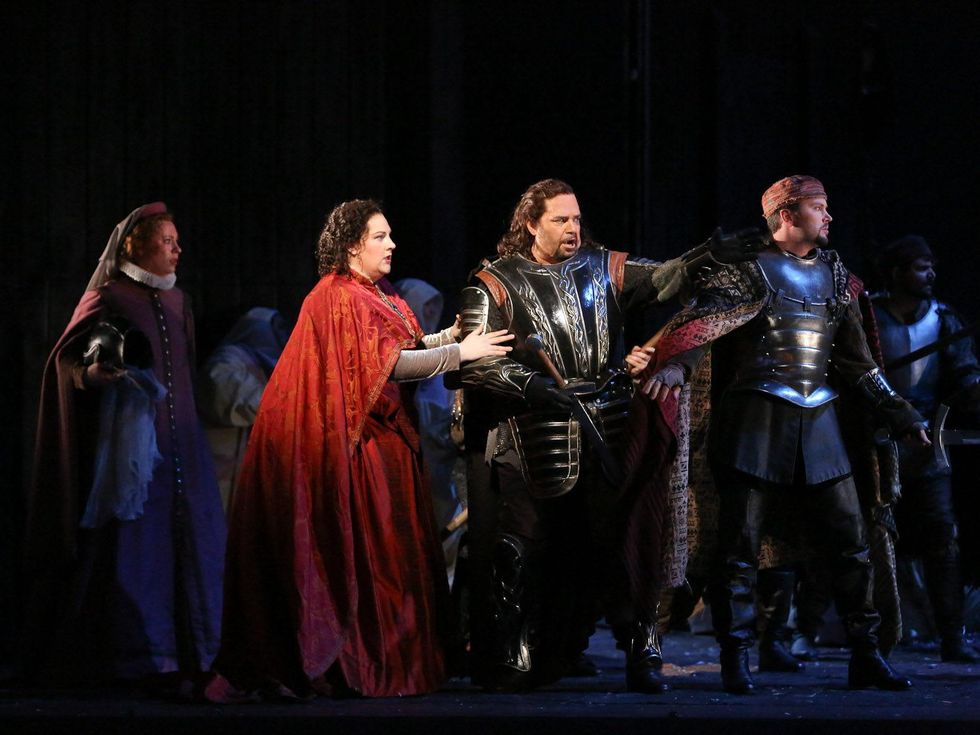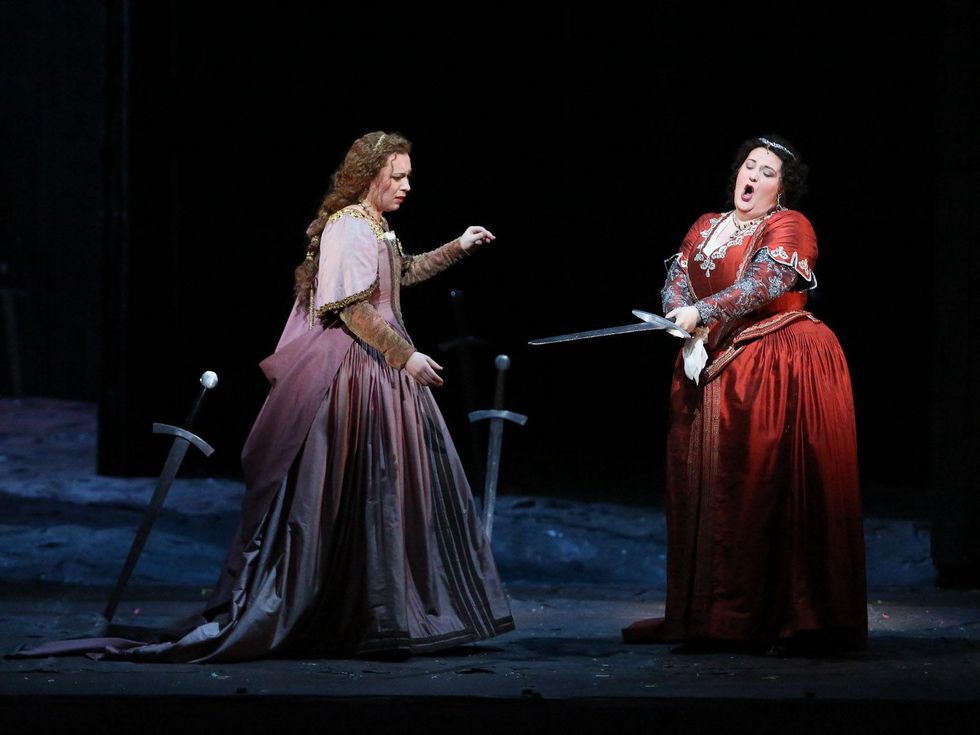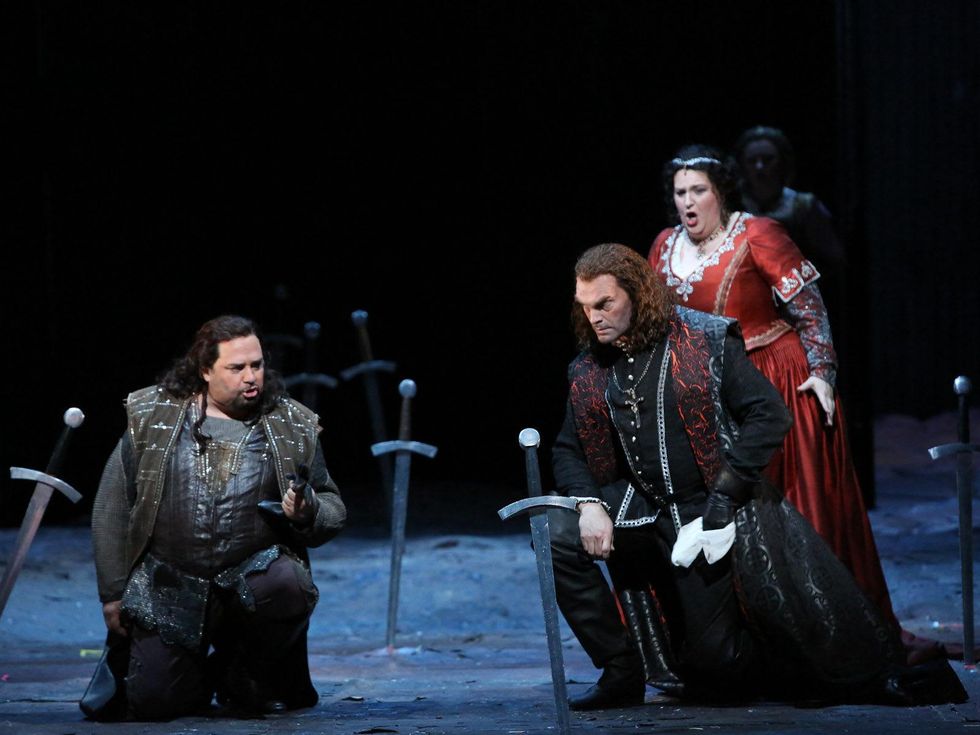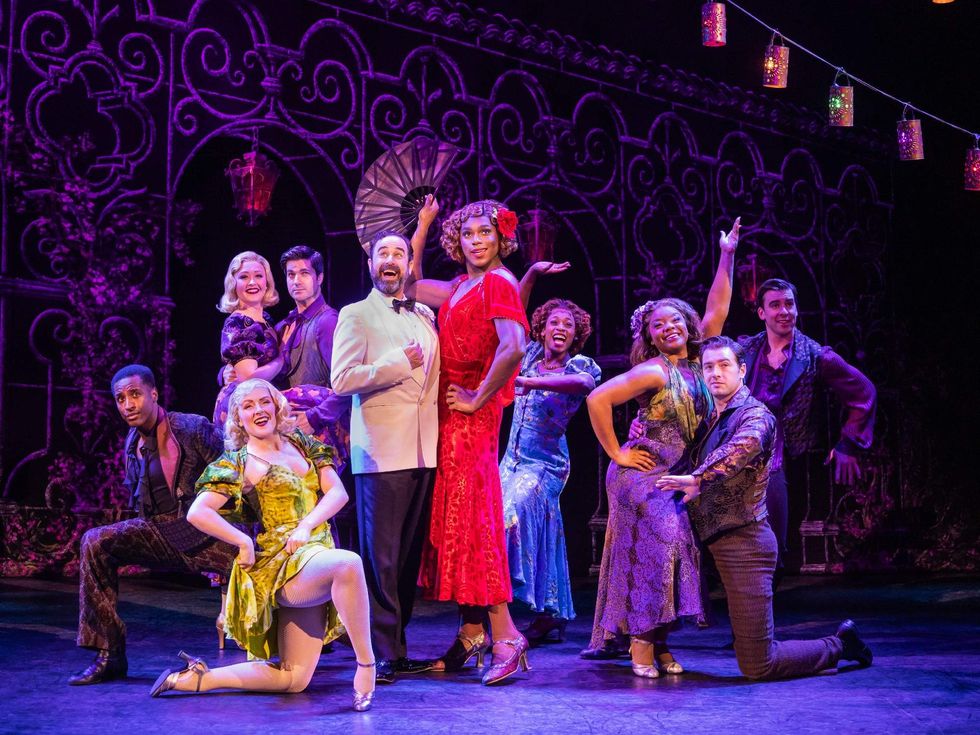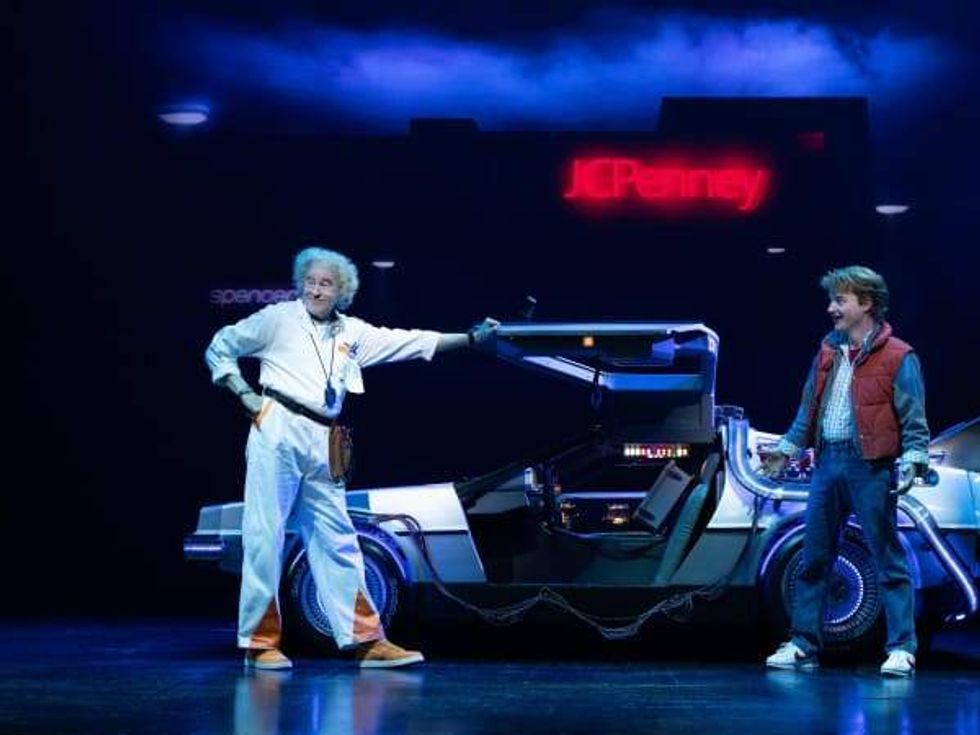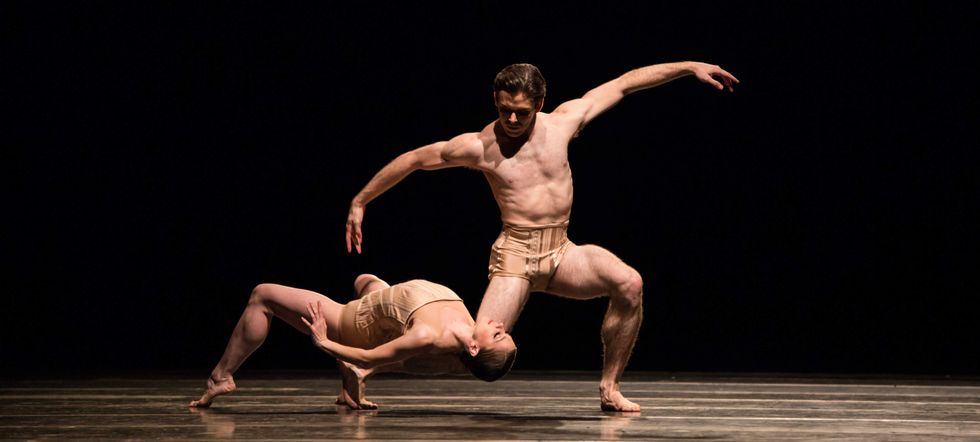The Review is in
Revenge trumps love in compelling Houston Grand Opera production of Il Trovatore
Is it not one of the great ironies of tragic opera that everyone should be in such good voice as disaster engulfs all?
I found myself thinking this on the opening night of Houston Grand Opera's final major offering of the season, Giuseppe Verdi's Il Trovatore. In an opera in which everything goes wrong in the plot, there was much to admire on the stage.
Il Trovatore promises so much that is classically operatic: lovers in the dark, jealous rivals, mistaken identities, poignant arias, layered ensembles, vengeful spirits, devastating secrets, and choruses of soldiers, gypsies, and nuns.
But when is an opera more than the sum of its parts?
In an opera in which everything goes wrong in the plot, there was much to admire on the stage.
To be sure, parts of Il Trovatore were stellar and first and foremost on this list would be Tamara Wilson as the lovelorn Leonora. What's a girl to do when she's wooed by a count but loves a troubadour? Trapped in a love triangle and in the midst of a war, Wilson soars as if she might with only her voice tear open the prison doors to release her lover.
Later, whispering to Manrico as she dies, a hush fell over the hall and we all strained in our seats to get closer. Wilson was hardly alone in the spotlight. The rich tones of mezzo-soprano Dolora Zajick brought to gypsy wise-woman Azucena a deep resonance, as if her painful songs were drawn from deep within the earth.
What a shame, then, Zajick was costumed like Stevie Nicks on a really bad night. Even worse, as she narrates the story of her mother being burned at the stake and her own incomprehensible lapse in tossing her child into that fire, pathetic flames shot up here and there from the stage with a distracting hiss of gas that elicited giggles from not a few members of the audience.
Similarly, at the tragic end, Azucena approaches a pyre that is far more backyard-barbecue than threatening inferno. Zajick held the audience with ease. In the presence of such voice, mere stage tricks just won’t do.
Compelling duets
Marco Berti's pure and radiant tenor was not to be overshadowed in the part of Manrico. It is an oddity of Il Trovatore that the most compelling duets were not between the lovers, Leonora and Manrico, but rather between Manrico and his adoptive mother Azucena. Upon hearing of her capture, Manrico's impassioned vow to rescue her brought Berti to some of the highest moments of the night. Of course, Azucena is the figure of vengeance, and she is not to be denied.
Revenge trumps love in Il Trovatore: romance is merely the bait.
Some of the most impactful singing came from the men's chorus. Peixin Chen, as Ferrando, ably performed the difficult task of holding the attention of his soldiers, who practically beg for a story in boyish whispers. Like skittish ponies they scatter at the sound of the midnight bell. Later, off-stage, the men provide a haunting layer beneath the primary action. Even off-stage they were a marvel.
Conducting Il Trovatore and Tristan and Isolde back-to-back is an impressive feat, and Patrick Summers brings out the delicacy nestled inside the grandeur of Il Trovatore.
One of the major players was the impressive set design by Benoît Dugardyn. As the curtain opens, two dozen swords puncture the stage — some at attention, some askew —serving as tokens of ongoing bloodshed. The bulk of the set was a series of wooden walls that sometimes suggested forest and sometimes suggested the perimeter of a city. Doors slid effortlessly up or across to allow entrance and exit or to create secluded, interior spaces.
Inventive and sometimes elegant, the set also had the unfortunate effect of dwarfing the singers or distracting from their performance when they most needed to be larger than life. This may also have been a consequence of Michael James Clark's lighting design, which though warmly evocative in the early campfire scenes and during the anvil chorus, often seemed murky, obscuring rather than illuminating action in the dark.
Conducting Il Trovatore and Tristan and Isolde back-to-back is an impressive feat, and Patrick Summers brings out the delicacy nestled inside the grandeur of Il Trovatore. At times, however, I wondered if the drawn out pacing might have robbed the production of a little energy. It's hard not to think of Verdi suffering from comparison to Wagner after HGO's stellar Tristan and Isolde. A friend reminded me the two composers were contemporaries, which is easy to forget.
Still, the sum of this Il Trovatore was compelling if not enthralling, even as many of the parts neared perfection.
---------
The Houston Grand Opera production of Il Trovatore continues through May 11.
